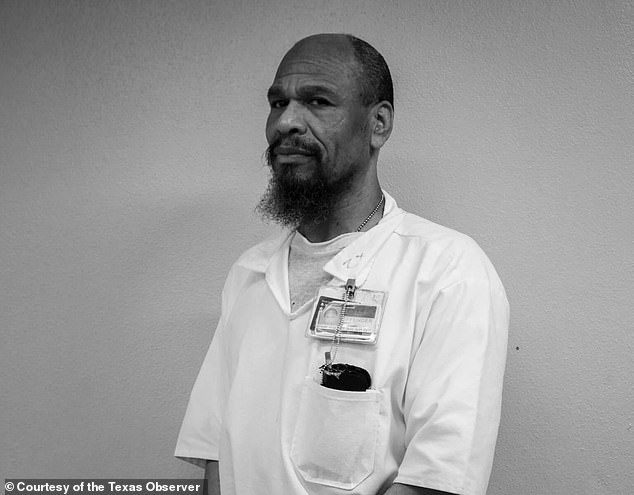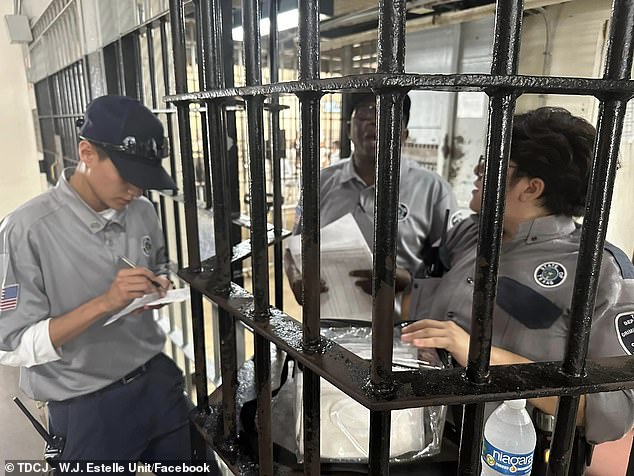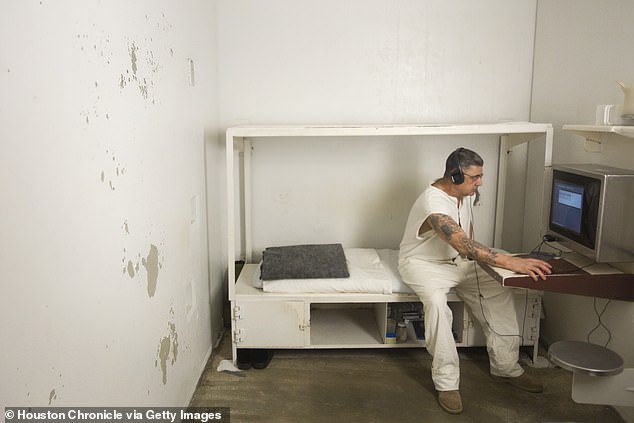A felon serving a life sentence has dedicated his time behind bars to completing online law classes while battling the Texas prison system for sleep deprivation.
Michael Garrett, 54, who has been in prison since 1994, sued the Texas Department of Criminal Justice (TDCJ) more than a decade ago for what he claims is “cruel and unusual punishment” and a violation of his Eighth Amendment rights.
Garrett, who was convicted of aggravated robbery with a loaded weapon, aggravated sexual assault and larceny, says that in any given 24-hour period, the prison schedule is so packed with frequent security checks that he is lucky to get four hours of sleep a night.
Bedtime comes at 10:30 p.m., when he locks himself in his 9-by-5-foot cell that he shares with one other inmate.
The men go to their cells and get into bed, but he says bright lights from the hallway shine in, heavy doors slam and gates lock, while neighbors can be heard chatting, shouting or listening to radios.
Michael Garrett, 54, who has been in prison since 1994, is suing the Texas Department of Criminal Justice over what he claims is “cruel and unusual punishment” for sleep deprivation.

Garrett is serving a life sentence at the Estelle Unit in Huntsville, Texas.
At one in the morning, the men are awakened for a head count, which they must respond to verbally to the guards.
If they manage to fall asleep after that, they wake up again at 2 am for breakfast and have the rest of the day filled with scheduling, check-ins, and appointments.
In addition to the light and noise of other prisoners at the Estelle Unit in Huntsville, Texas, along with the comings and goings of prison guards, Garrett says that just hours after he closes his eyes, he wakes up to another count.
As a result of the constant interruptions during the night, Garrett says he now suffers from migraines, high blood pressure and seizures.
Hoping he could somehow change the schedule and force the prison to allocate six hours of scheduled sleep each night, he took matters into his own hands with a series of online law classes.

Garrett’s knowledge of the law has impressed even the most experienced attorneys. Courts have dismissed his case three times. He wants to see a change in the prison schedule to allow him six hours of sleep.

There are sounds of heavy doors slamming shut and gates banging, while neighbors can be heard chatting, shouting, or listening to radios, making sleep extremely difficult.

An inmate works on a computer in his cell in the administrative segregation wing of the Estelle Unit (file photo)
His first lawsuit against the TDCJ was filed in 2013 and he was sufficiently equipped with the legal procedures to represent himself.
A civil attorney eventually helped prepare his case, but federal district court judges ruled against Garrett three times.
Incredibly, the convicted criminal’s dogged determination saw him win his appeal at the high court, successfully securing the… The conservative Fifth Circuit sided with him three times.
Garrett’s knowledge of the law has impressed even the most experienced attorneys.
“He knows the rules. He knows the obstacles that lawyers face. He’s patient and he’s committed to the long term,” criminal defense attorney Naomi Howard told the court. Texas Observer. ‘I mean, the man survived the Fifth Circuit without any help from me.’
Throughout this time, Garrett has conducted his own legal research, writing and presentations from his cell and the prison law library.
In his lawsuit, Garrett accused the TDCJ of “intentionally” or “liberally” denying inmates sleep and that he simply wants a change in prison policy.
But the court said there is no constitutional right to sleep in prison. The judges also said he cannot prove that the medical conditions he suffers from are directly related to his lack of sleep.
“I knew it was going to be a long road, but I didn’t think it was going to be this long,” she told the Observer.
(tags to translate)dailymail

